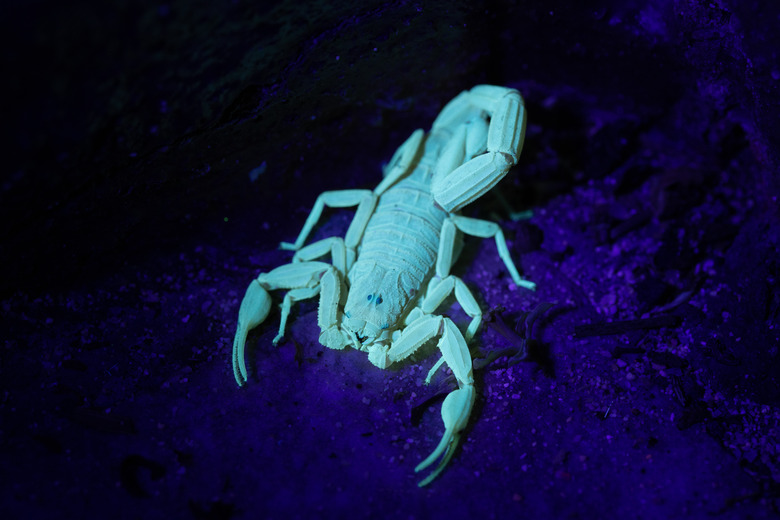How Dangerous Are Caribbean Scorpions?
Caribbean scorpions are poisonous, but they aren't always dangerous to humans. Most scorpions have venom in the stinger on their tail which they use to subdue prey. Often it's the scorpions with smaller pincers that are more poisonous, as they primarily rely on their stingers rather than their pincers for hunting. Regardless of their method for subduing prey, most scorpions are sit-and-wait ambush predators and will only use their stingers to catch prey or as a defense mechanism when they are threatened.
Types of Scorpions
Types of Scorpions
Scorpions are in the class Arachnida, meaning their closest relatives include spiders, ticks and mites. Scorpions are found on every continent across the globe except Antarctica, and live everywhere from arid deserts to lush rainforests.
Scorpions have excellent survival skills, with some scorpions being able to freeze and reanimate when conditions become warmer. In times of food scarcity, scorpions can slow their metabolism so they require less food to live.
Caribbean scorpions primarily belong to either the Centruroides or Tityus genera. Both of these genera belong to the scorpion family Buthidae. Scorpions in the Buthidae family use neurotoxins in their venom.
Venomous Scorpions
Venomous Scorpions
Of the over 2,000 scorpion species worldwide, only 30 to 40 scorpion species are venomous enough to kill humans. For the most part, scorpions in the Caribbean only produce mild effects in humans when stung. Pain from mild scorpion stings resembles that from a bee sting. Localized swelling may occur, but symptoms should subside within a few hours.
One scorpion that is potentially dangerous to humans in the Caribbean is the Trinidad thick-tailed scorpion (Tityus trinitatis). This is the only scorpion species in the West Indies that have caused human deaths. Trinidad thick-tailed scorpion stings can cause acute pancreatitis (inflammation of the pancreas). Most people who seek medical treatment after a sting will recover with no long-term side effects, though children need to be more carefully monitored than adults.
Scorpions Found in Trinidad
Scorpions Found in Trinidad
Trinidad thick-tailed scorpions are endemic to the islands of Trinidad and Tobago. Of the nine scorpion species found on the island, the deadly Trinidad thick-tailed scorpions are the most common, making up around 90 percent of the local scorpion population. They rarely attack humans despite their potentially fatal venom, only inflicting their sting when stepped on or handled roughly.
Little is known about other scorpion species in Trinidad, including Ananteris cussinii, Broteochactas nitidus and B. laui. However, it is known that the light brown, spotted dwarf scorpion (Microtityus rickyi) is nontoxic. The dwarf scorpion is the smallest on the island, with the largest adults measuring less than three-quarters of an inch.
Interesting Facts About Scorpions
Interesting Facts About Scorpions
While sometimes they can be spotted in trees, scorpions usually live on the ground and may be hidden among leaf litter, under logs and rocks or among vegetation. Often scorpions are more active at dusk, night or dawn when the lighting is low. This makes it difficult to see and avoid accidentally stepping on a scorpion.
However, there is one amazing feature all scorpions have that makes them easier to see at night: under ultraviolet and black lights they glow in the dark. This bright blue-green light is caused by a fluorescent layer in scorpions' exoskeletons.
No one really understands why scorpions do this. It could be reminiscent of an ancient defense mechanism, to protect them from the sun, to help them find other scorpions, to distract prey or even help them better hide their body so they don't expose themselves when waiting for prey. Regardless, if someone is worried about standing on a scorpion at night, shining a black light on the ground can be a good way to help spot them.
Cite This Article
MLA
Jerrett, Adrianne. "How Dangerous Are Caribbean Scorpions?" sciencing.com, https://www.sciencing.com/dangerous-caribbean-scorpions-8775849/. 30 September 2021.
APA
Jerrett, Adrianne. (2021, September 30). How Dangerous Are Caribbean Scorpions?. sciencing.com. Retrieved from https://www.sciencing.com/dangerous-caribbean-scorpions-8775849/
Chicago
Jerrett, Adrianne. How Dangerous Are Caribbean Scorpions? last modified March 24, 2022. https://www.sciencing.com/dangerous-caribbean-scorpions-8775849/
